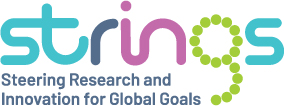Book review: Inclusive Innovation: Evidence and Options in Rural India
Dr Rasheed Sulaiman V, Director of the Centre for Research on Innovation and Science Policy (CRISP) and STRINGS partner, reviews Inclusive Innovation: Evidence and Options in Rural India by Rajeswari S Raina and Keshab Das (eds). Read the full review.
